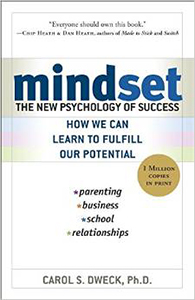
FOCUS ON THEM
By Dave Gosselin
The goal for all business leaders, coaches, and educators should be to create an environment that maximizes learning and growth for those you lead, train, or teach.
Being a leader is challenging—but we may make it more difficult than it needs to be. A critical first step is recognizing that leading is not about you, it is about whom you lead. Accomplishing any goal, whether it’s competing in sports, passing a class, or excelling at work, requires building a culture of trust—because learning happens most effectively in a collaborative environment.
Learning, at its most basic, is change management—and all the same rules apply. Focus on Them explains what it takes to build the team atmosphere to do all these things—for teams on the field, in the classroom, and in the workplace.
Click here to buy Focus on Them on Amazon, available now!
FOCUS ON THEM
Chapter Synopses
Learn how leadership guidelines for coaches, teachers, and business leaders have to focus on the needs of those you lead. What worked for you may not work for them. It needs to be about them!
Before you can truly communicate with others, you need to know yourself—who you are, what your weaknesses and strengths are; why you react to criticism and encouragement the way you do. Most importantly, you have to understand what motivates you, and realize that others may be motivated differently. Honest self-assessment and self-awareness are hard.
Knowing who you are is the foundation for your philosophies, values, and ethics. Your philosophies, values, and ethics are the starting point for your communication with your team. Take the time to write them down, and work to let your team know where you’re coming from. You can’t walk the talk until you do.
Once you know who you are, you’re ready to focus on them. Ask yourself who are they, what do they need, how do they need it? What motivates them? How do they interact with their teammates or colleagues? The answers will be different for them than they were for you, so get ready.
There’s more to playing the game than winning. Why are you and your team or group really here, and what do you—and they—want to accomplish? The four basic questions will get you started. Knowing who they are and what they want is fundamental to determining your goals.
You’ve got to think about what will work for them, and learn to leave your assumptions at the door. You’ll need to practice, and continue learning about both yourself and them. Practice makes perfect.
Reaching any goal requires learning. Learning requires practice and change, in your understanding and perspective. Learning, at its most basic, is change management. People learn best in a collaborative environment with instruction that engages them and builds on what they already know.
Measurement creates feedback. Measurement motivates. Setting goals and standards beyond winning, and more about what you learn and do along the way, will promote a growth mindset that builds better players, colleagues, and teams.
Your primary goal as a leader is to establish communication with and among your team. You must establish trust and engage the stakeholders, through communicating your philosophies, your intent, and your caring. And you’ve got to do it verbally and nonverbally. Without effective communication, you can’t reach your goals.
Now that you know what it takes, know that you’ll be practicing and learning as you go. As leaders, coaches, and teachers, we expect those that we lead to learn new skills and practice. We should expect no less of ourselves.









Recent Comments